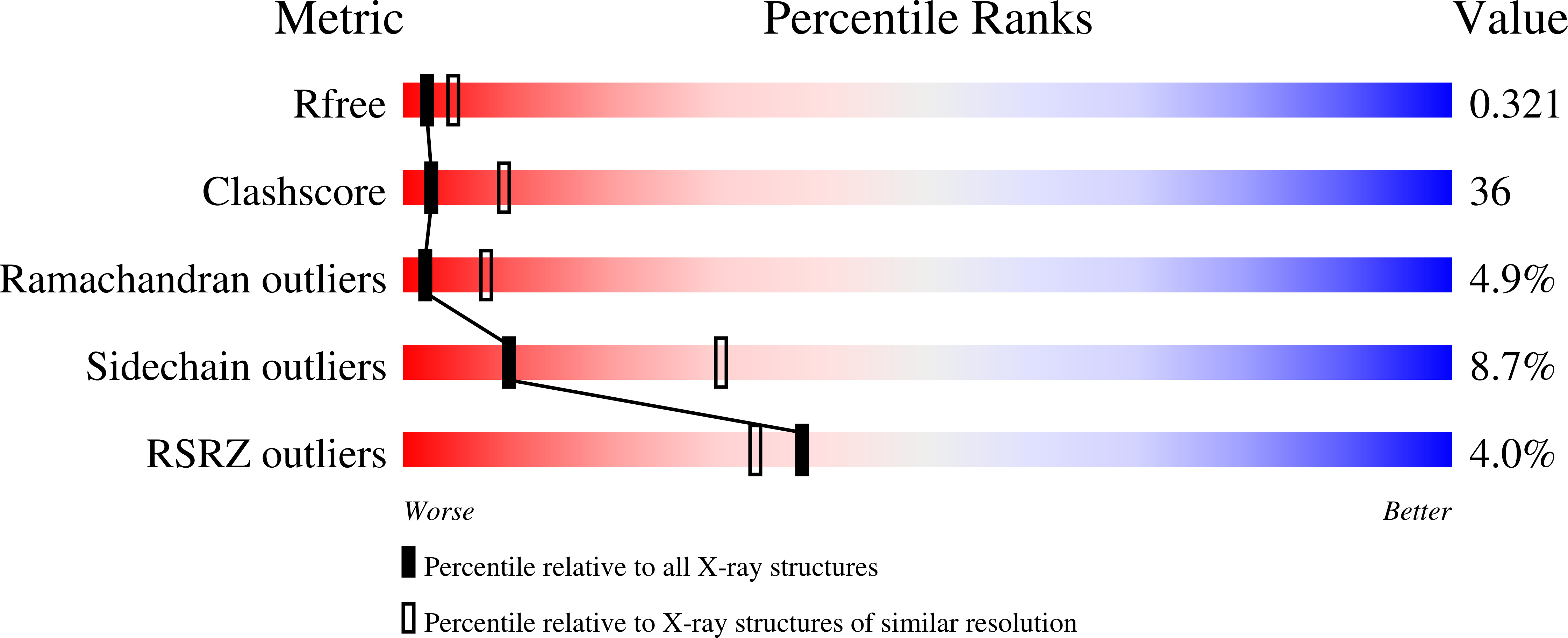Contributions of the interdomain loop, amino terminus, and subunit interface to the ligand-facilitated dimerization of neurophysin: crystal structures and mutation studies of bovine neurophysin-I.
Li, X., Lee, H., Wu, J., Breslow, E.(2007) Protein Sci 16: 52-68
- PubMed: 17192588
- DOI: https://doi.org/10.1110/ps.062444807
- Primary Citation of Related Structures:
2HNU, 2HNV, 2HNW - PubMed Abstract:
Current evidence indicates that the ligand-facilitated dimerization of neurophysin is mediated in part by dimerization-induced changes at the hormone binding site of the unliganded state that increase ligand affinity. To elucidate other contributory factors, we investigated the potential role of neurophysin's short interdomain loop (residues 55-59), particularly the effects of loop residue mutation and of deleting amino-terminal residues 1-6, which interact with the loop and adjacent residues 53-54. The neurophysin studied was bovine neurophysin-I, necessitating determination of the crystal structures of des 1-6 bovine neurophysin-I in unliganded and liganded dimeric states, as well as the structure of its liganded Q58V mutant, in which peptide was bound with unexpectedly increased affinity. Increases in dimerization constant associated with selected loop residue mutations and with deletion of residues 1-6, together with structural data, provided evidence that dimerization of unliganded neurophysin-I is constrained by hydrogen bonding of the side chains of Gln58, Ser56, and Gln55 and by amino terminus interactions, loss or alteration of these hydrogen bonds, and probable loss of amino terminus interactions, contributing to the increased dimerization of the liganded state. An additional intersubunit hydrogen bond from residue 81, present only in the liganded state, was demonstrated as the largest single effect of ligand binding directly on the subunit interface. Comparison of bovine neurophysins I and II indicates broadly similar mechanisms for both, with the exception in neurophysin II of the absence of Gln55 side chain hydrogen bonds in the unliganded state and a more firmly established loss of amino terminus interactions in the liganded state. Evidence is presented that loop status modulates dimerization via long-range effects on neurophysin conformation involving neighboring Phe22 as a key intermediary.
Organizational Affiliation:
Department of Biochemistry, Weill Medical College of Cornell University, New York, NY 10021, USA.














